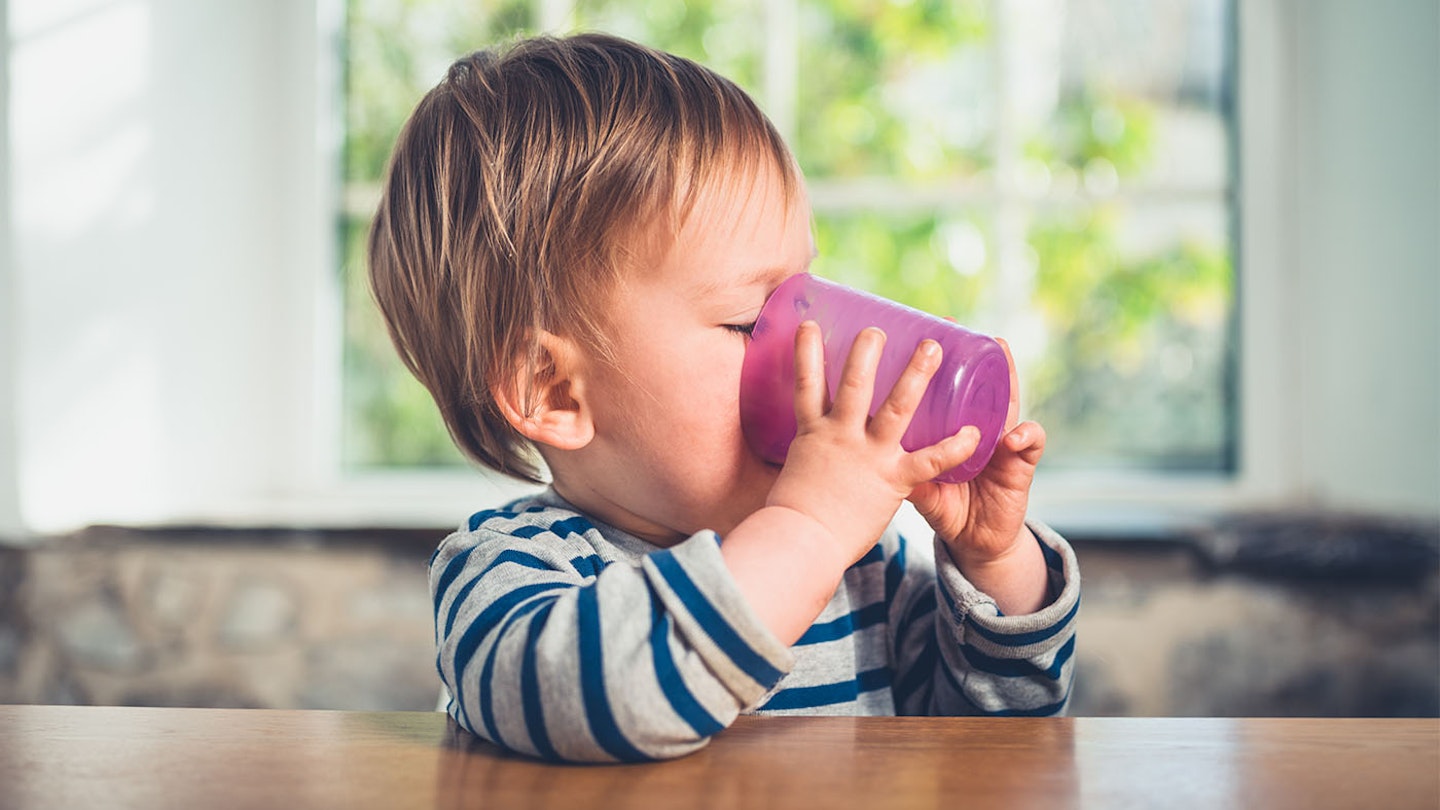Transitioning your little one from a bottle to a cup can be tricky and a lot of the time, 80 per cent of what is in the cup ends up on the floor.
The NHS recommend introducing your child to drinking from a cup or beaker from around six months. Using an open cup or a free-flow cup without a valve or a straw will help your baby learn to sip rather than suck and is better for your baby’s teeth while helping with their orofacial muscles, used for speech.
Some parents prefer to move their baby onto a sippy cup before progressing to a beaker or cup while others like to skip the sippy cup completely.
If it's time for your child to make the change, make drinking more exciting with our pick of kids' beakers and cups.
When should I move my baby to a cup?
Moving your little one from a bottle to a kids' beaker can be quite fiddly and something that little ones can take to right away, or may need lots of support and encouragement.
"Babies are usually ready for a cup from around six to eight months, but some babies are not interested until they are over 12 months,’ says Fi Star-Stone, a baby expert and author of The Baby Bedtime Book. Go by your baby – every child is different.
"It’s important to move to a cup because if your little one spends all day slurping on a bottle of milk or juice, it could lead to serious tooth decay," says Fi. It also means there's less room for baby foods, which hold more nutrients.
Remember that if you serve milk from a kids' beaker or cup, all pieces need to be steriliseduntil your child turns one.
How can I make the transition from bottle to cup?
Many parents worry about moving their little ones from bottle to cup because they’re worried the change will mean they’ll reject the cup completely. "Often the comfort of breastfeeding or bottle-feeding can cause reluctance to accept a cup, so it's important not to make it a big deal, and just introduce the idea gently," says Fi.
Fi suggests these tips for making the move easier...
Pick the right time
Try introducing the cup at lunch and tea-time rather than breakfast when your little one is very hungry, and keep the evening milk before bed as a breast or bottle feed until they are a little older as it's more comforting than a cup.
Invest in some sippy cups
It's a good idea to shop around when it comes to buying cups as your baby may prefer some cups over others. It's a learning experience for you both. You may want to start with a slow-flowing sippy cup that limits the flow of liquid from the cup. This will make choking on fluid less likely, which is a common cause of cup rejection.
Try dipping
Dip the tip of the cup spout into your baby's breast milk or formula and then give it to your baby to try.
Show your little one the way
Children love to copy, so take a sip from the cup yourself and offer your baby one for themself. Siblings also come in handy when introducing cups - let him help by showing their younger sibling how to drink ‘like a big boy or girl’.
Try different liquids
Some babies will only take water from a cup, preferring the breast or bottle for breast milk or formula. Don't worry, this is normal, just encourage regular tries of the cup. When your baby is 12 months and over, a sippy cup is a great way of introducing cow's milk. You can warm it a little first – this often makes toddlers accept sippy cups more easily.
Moving from a sippy cup to a kids' beaker
If your child is already using a sippy cup and you'd like to move them onto a kids' beaker, start by making a big deal out of drinking from a regular cup, and how it’s for grown-ups.
Try only serving your toddler’s favourite drink in an open cup, and saving the sippy cup for water. If this happens to be juice, make sure it’s diluted. Don’t stress about the mess as accidents will happen, just (try!) encourage your toddler to help you clean up!
The best kids' beakers and cups
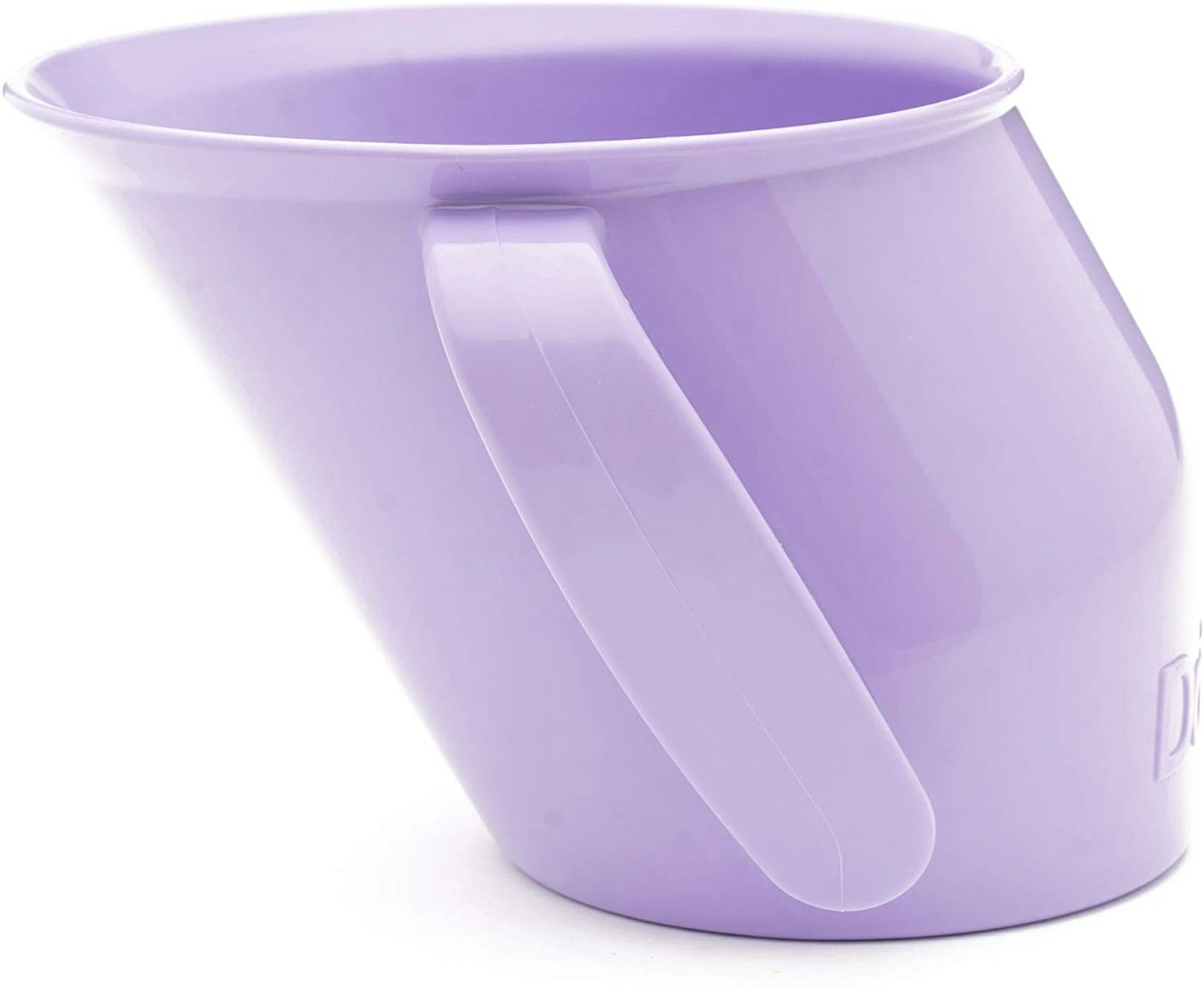 1 of 8
1 of 8Doidy Slanted Sippy Cup
The ultimate cup to teach little ones to drink. This slanted cup has been designed to make the transition from a teat to a cup a lot easier, and tots can also see the liquid they are drinking which helps avoid spillage.
Review: "Fab! My exclusively breastfed baby wouldn't take out of bottle/ sippy cups. This is only cup she will take from. Fantastic. A must for exclusively breastfed babies."
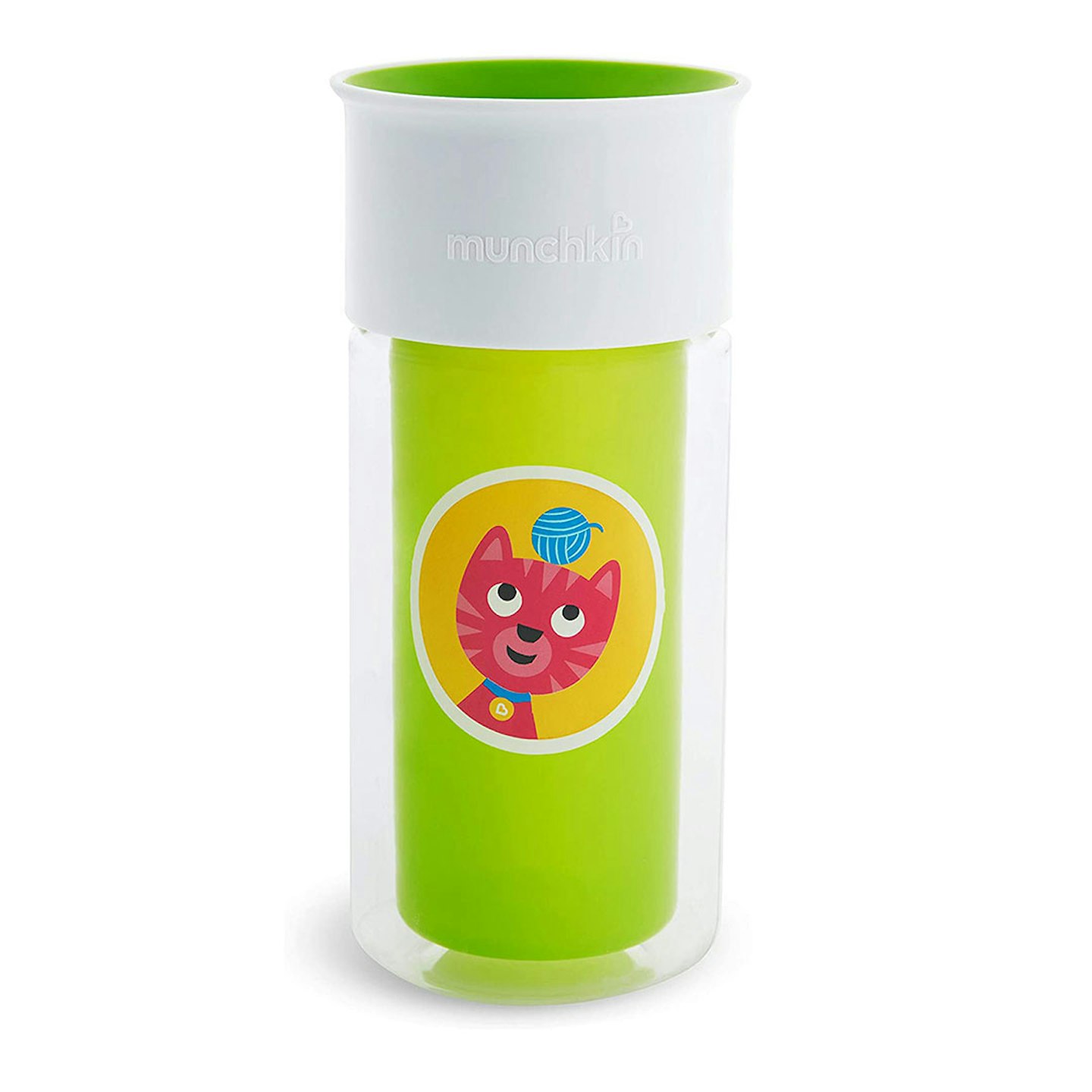 2 of 8
2 of 8Munchkin Miracle 360 Insulated Sippy Cup
This cup was nominated for the Best Weaning Product in our Mother and Baby Awards 2021 and it can even be personalised. This fully insulated cup helps to keep drinks hot or cold and is a leak-proof design. Your tot can drink for any angle of this cup, as the lid helps to prevent spillage while offering 360 degree drinking.
Tested by mum Vicki for the Mother and Baby Awards 2021: "We have sent this cup to nursery with our 2.5yr old for him to use there and they bring it home every day. The fact that you can customise it with their name and it’s locked inside a layer of plastic is fab as there’s no name sticker peeling off and him not coming home with it. He also loved getting involved and sticking the stickers on where he wanted."
Read our full review of the Munchkin Miracle Personalised Cup here
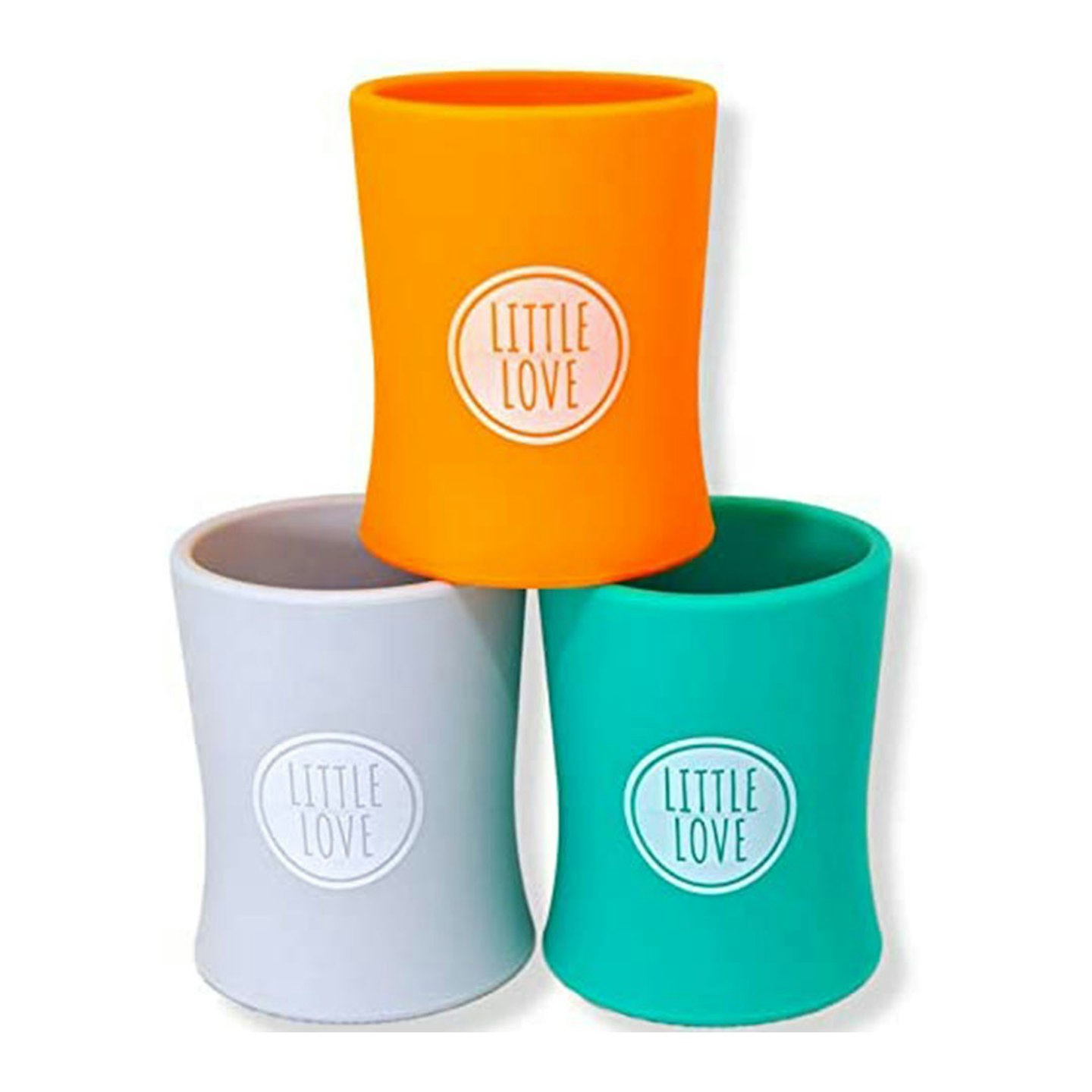 3 of 8
3 of 8Premium Baby Cups
Designed for growing hands, this cup is made from silicone, so it's gentle on gums and easy to grip. It even has a weighted base for stability, giving your tot the confidence to place down their drink and pick up without knocking over.
Review: "Little one just turned 2 and was asking to drink with the lid off but often spilling on himself. These are just fantastic. Perfect size for little hands and sturdy so less likely to be knockee over. I gave him some water in it and he drank without a single spill and kept asking for a top up! Definitely a hit!"
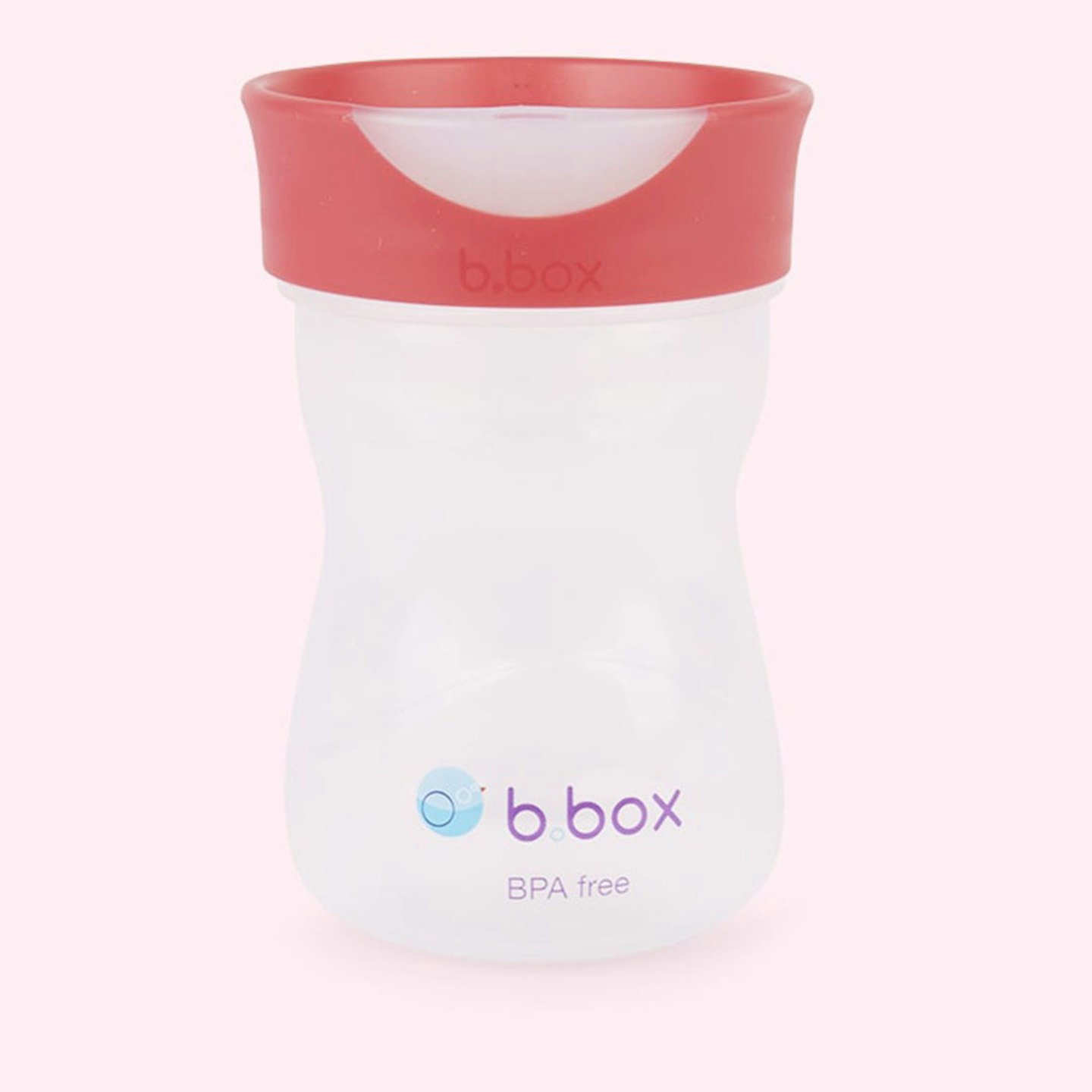 4 of 8
4 of 8B-Box Training Cup
Designed to minimise spills, this cup is cleverly designed to mimic the flow of an open cup. The clear lids let tots see the liquid, helping them to learn when to take a sip and how far to tilt the cup.
Review: "Superb quality. Perfect tiny opening for drinking, and easy for little one to see where the drinking hole is as that part is clear rather than coloured like the rest of the lid. Little one took straight to it after a couple of attempts. Will be ordering more in other colours to keep with family who provide childcare and for nursery too."
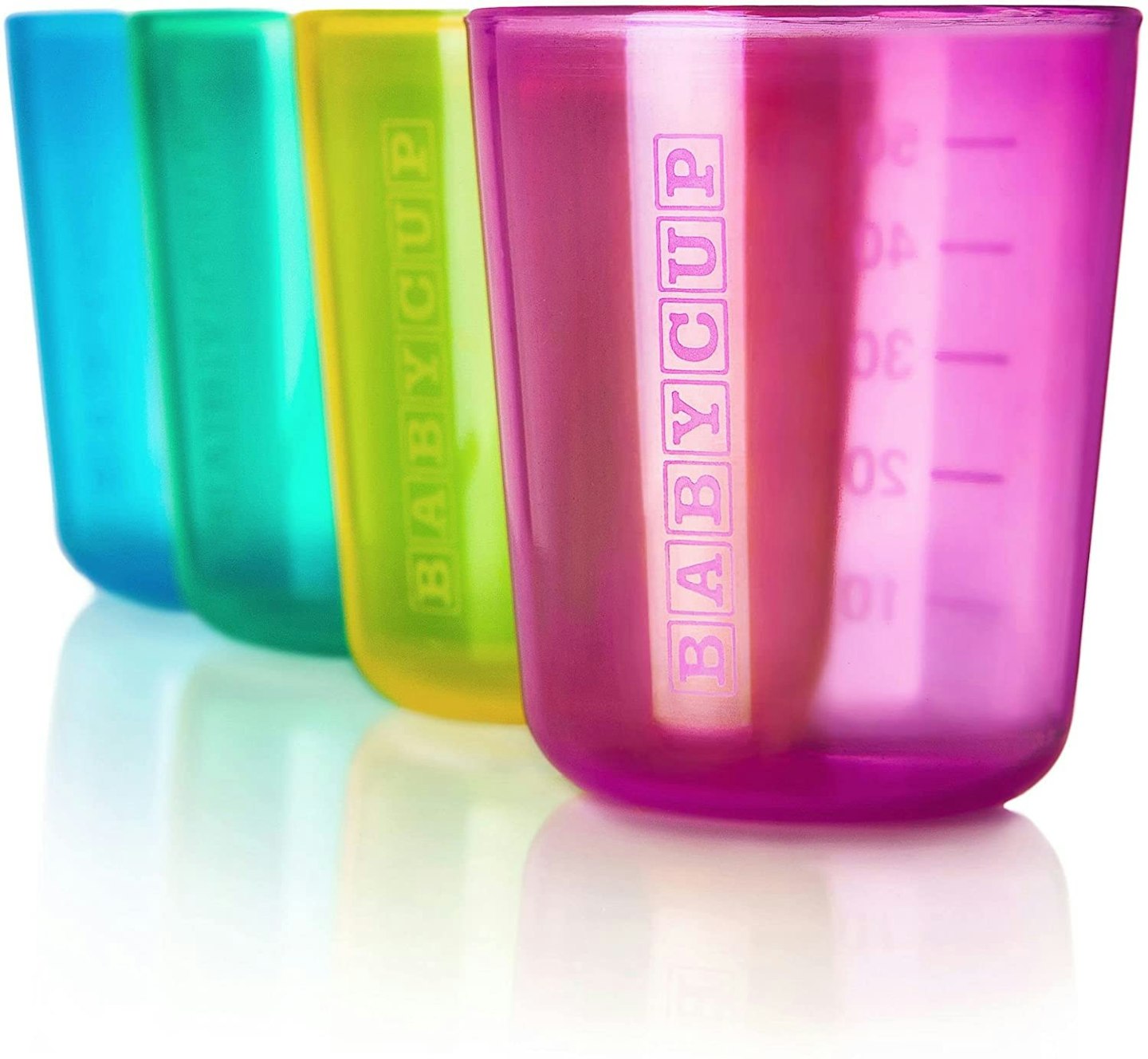 5 of 8
5 of 8Babycup First Cups
Great for teaching little ones to drink from a cup without a lid, and ideal for transitioning straight from breast or bottle to cup, missing out the sippy cup stage. They are small, so some children might be frustrated by only getting a small amount of liquid. Read our full review of the Babycup First Cups here
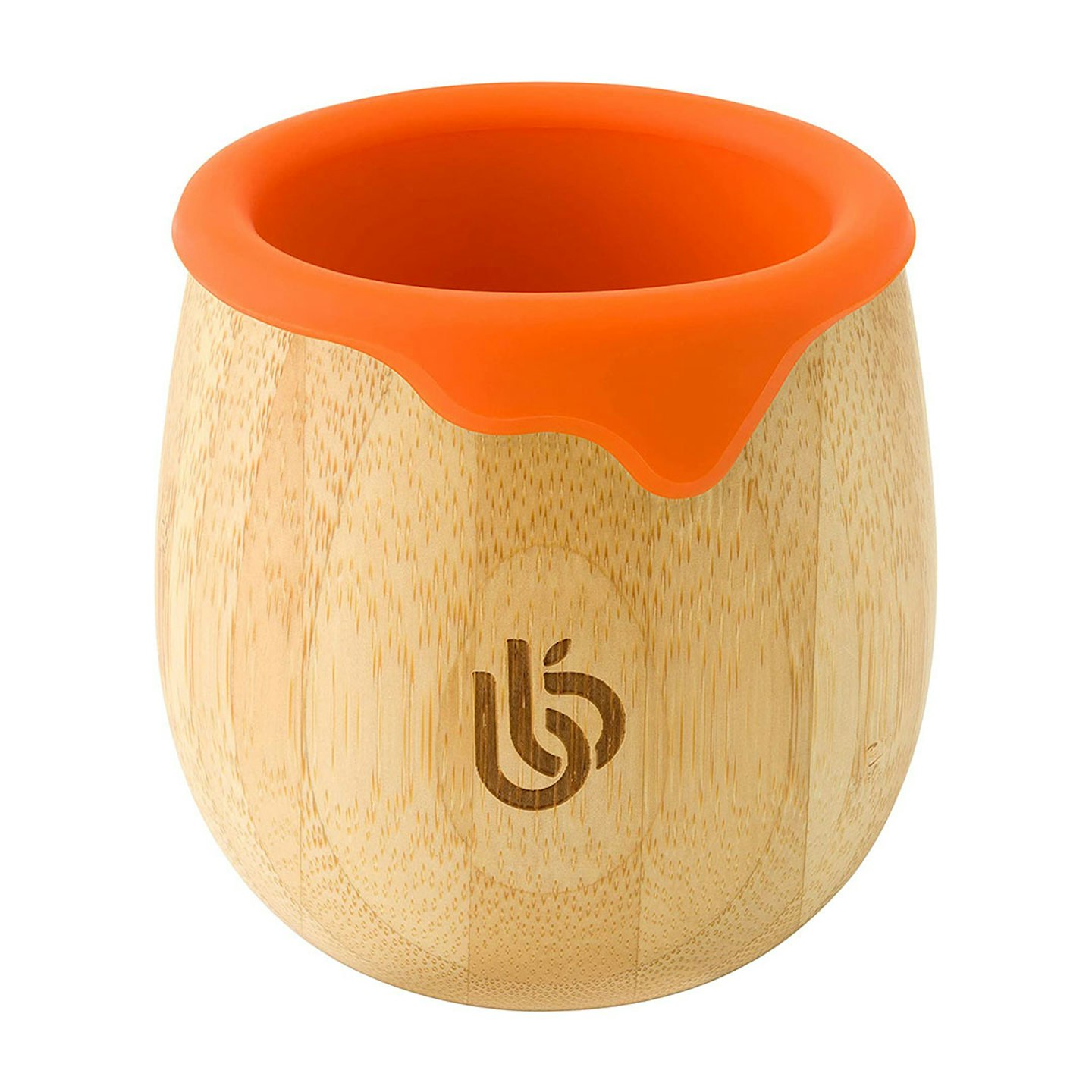 6 of 8
6 of 8Bamboo Bamboo Toddler Cup
Made of natural bamboo and food-grade silicone, this sustainable cup is designed with a honey barrel jar in mind and to ergonomically fit snugly in your little ones hands. The silicone lining can be popped in the dishwasher and you can also use the cup for yoghurts, purees, smoothies and more - just add a spoon!
Review: "I bought two of these for our 15 month old grandson. The design is excellent, easy for little fingers to hold with a soft silicone edge for tender mouths. The weight balance of the cup is well thought out and, after a couple of early spills, our grandson soon learned how to hold and drink successfully."
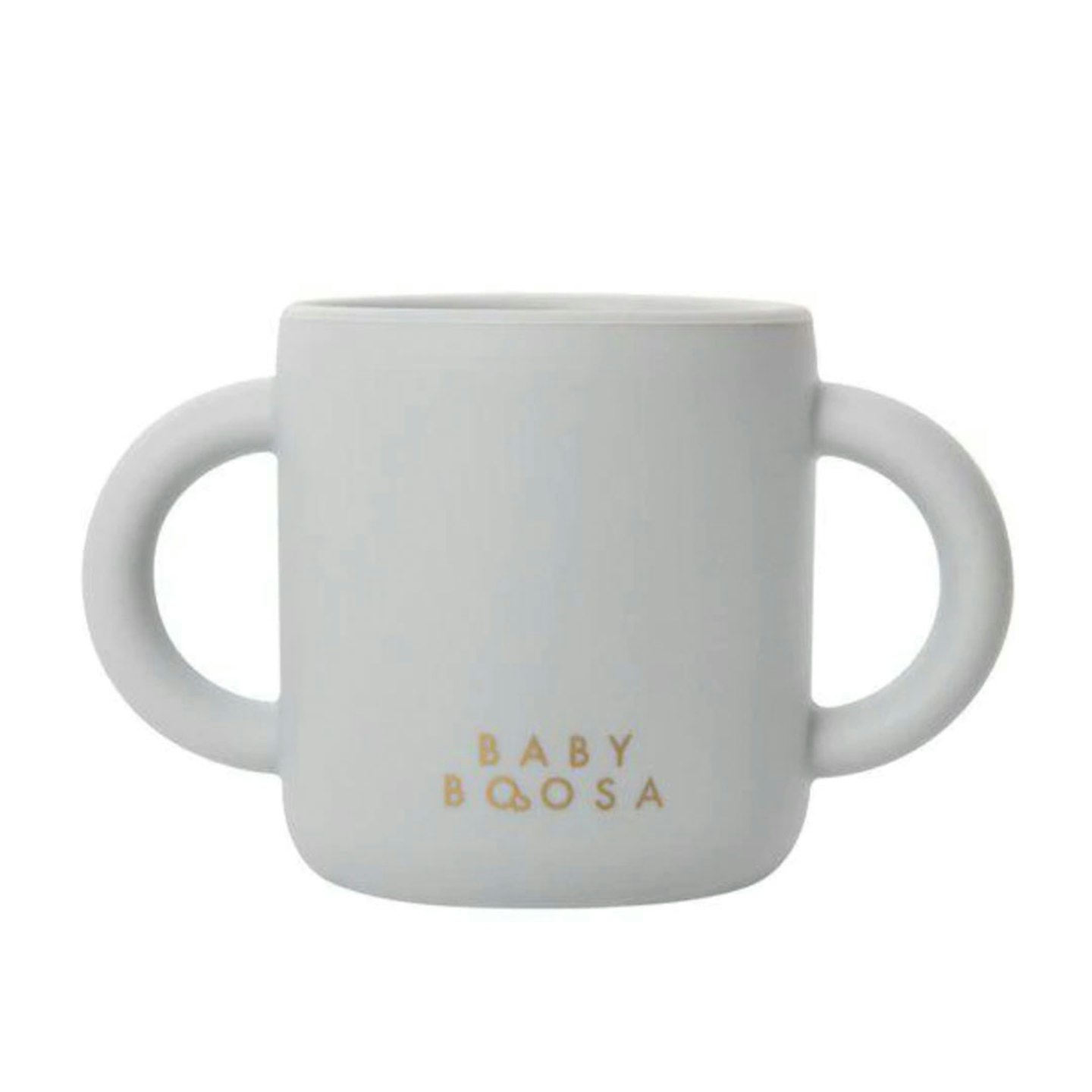 7 of 8
7 of 8Baby Boosa My 1st Cup
With perfectly sized handles for little hands to grasp, this minimalist cup is made from durable and soft 100 per cent food grade silicone. Dishwasher safe, the capacity isn't as big as over cups however there's more than enough to get your tot used to open cup drinking.
Review: "It is a little difficult to see how much water baby is drinking at a time as the cup isn't see through, but for my 7 month old we put a little bit in at a time to avoid any big spills. The cup is soft, so i feel safe knowing it doesn't hurt baby's mouth. The handles on both sides are also great so baby can learn to hold independently."
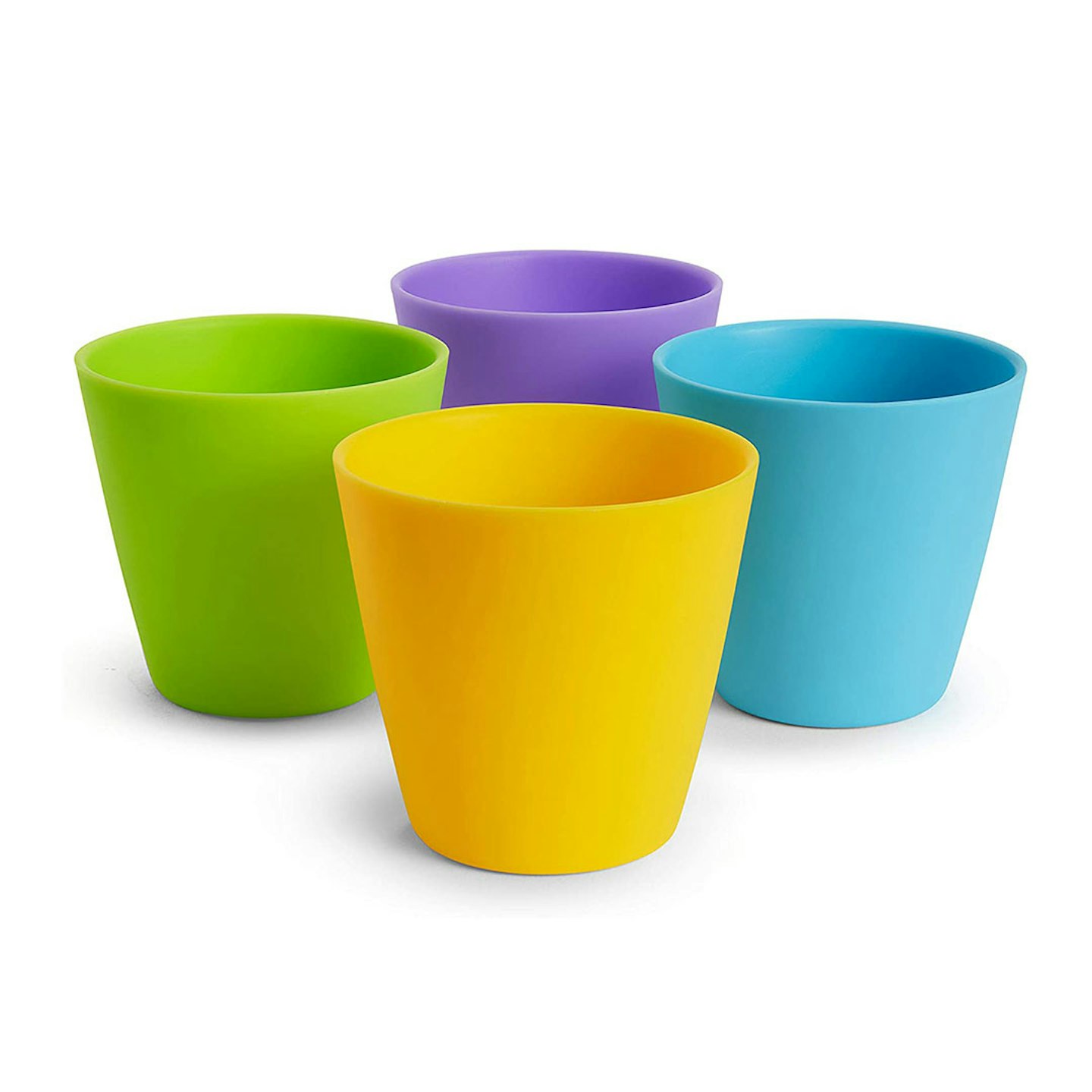 8 of 8
8 of 8Munchkin Multi Toddler Cups
Sized just right for little drinkers, these transition cups from Munchkin have a wide base to provide extra stability. Stackable, they'll take up little space and your child will love the bright colours.
Review: "Perfect size for little ones hands and easy to hold. These are the first cups I’ve bought for son and though it says 18mo+ mines been using them from 14. So it just depends on size. My boy loves these and actually prefer drinking from these than his bottles."
Popular articles to read
How we test and choose recommended products
Our product recommendations are based on a combination of real-world testing from our burgeoning army of mum testers and the extensive knowledge of our experienced editorial team and product specialists. Where we can, we also consult experts who specialise in that field to ensure you get the right advice along with the right product, and we listen to what you say as well.
Our thriving mum community on our Facebook group #mumtribe consistently provides great insights into which products mums like best and why, helping us highlight the products that will meet your needs.
For essential products, our annual Mother&Baby Awards shortlist the top products tested. Full reviews from our mum testers can be found on our product pages. The winners and runners-up for each category will also appear in our top picks article for that product, along with other products that were rated highly by our team.
